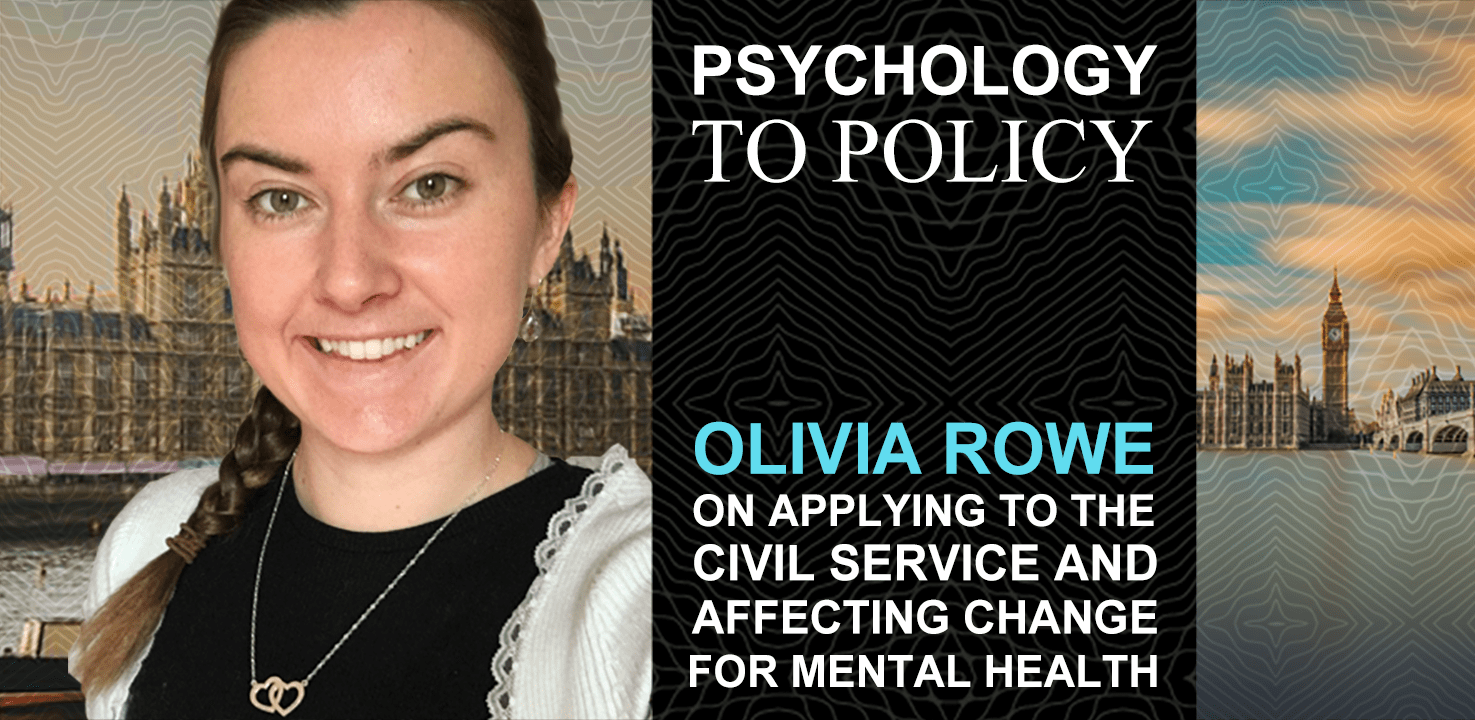Olivia Rowe, Psychological and Behavioural Sciences alum, shares how she became a Senior Executive Officer for the Department of Health and Social Care and discovered the kind of career she wanted
When studying Psychological and Behavioural Sciences (PBS) at Cambridge, I was always interested in the ‘bigger picture’ implications of research. If childhood mental health problems are on the rise, what does this mean for our mental health system? And if poverty is a driver of mental illness, what does this mean for our welfare system?
…applying to the scheme helped me transition from a place of anxiety about what I was going to do after graduation to a place of enthusiasm for how I wanted to make my mark on the world.
Applying to the Fast Track Scheme
I didn’t know what a career in health policy was until I came across the Department of Health and Social Care (DHSC) Health Policy Fast Track Scheme online, a 3-year graduate scheme in health policy. This was an exciting opportunity to translate research into evidence-based health policies which could make a positive difference to society.
The application process was very long and consisted of online aptitude tests, a video interview, assessment centre and final interview. After reportedly receiving over 1000 applicants, I was amazed to make it to the final interview. However, my desire to get the job made me extremely nervous and as a result the interview didn’t go very well and I didn’t get the job. This was devastating as by this point I had set my heart on health policy. On reflection however, applying to the scheme helped me transition from a place of anxiety about what I was going to do after graduation to a place of enthusiasm for how I wanted to make my mark on the world.
Fortunately, DHSC placed me on their reserve list in case any other entry level jobs came up outside of the scheme. I was pleasantly surprised when DHSC got back in touch in the Summer with a job offer in children and young people’s mental health policy. This is an area I am particularly passionate about and I leapt at the opportunity!
The crazy Cambridge essay deadlines have given me the ability to draft a ministerial briefing in an afternoon, something which was especially useful when supporting the fast-paced COVID-19 policy response.
Working as a civil servant
My first week at DHSC was euphoric. It was exactly the kind of ‘big picture’, strategic thinking I wanted out of a job, combined with a healthy adrenaline rush of last-minute briefings and rushes to Parliament for debates. I gained confidence, knowledge and skills in policy that helped me land a promotion to Senior Executive Officer (SEO) one year later. I now cover offender health, restrictive practice in mental health units and asylum-seeker and refugee mental health. It is a diverse and exciting policy brief and I have the freedom to come up with new ideas to put forward to ministers.
My PBS degree has helped me in a number of ways. It has given me a solid knowledge base in mental health and skills in critical analysis to create evidence-based policy proposals. The crazy Cambridge essay deadlines have given me the ability to draft a ministerial briefing in an afternoon, something which was especially useful when supporting the fast-paced COVID-19 policy response.
The highlights of my job include getting to influence and create government policies which have the power to make a huge difference to people’s lives. The civil service pay and benefits are very reasonable and I work a solid 9-5 to the amazement of my friends working in the private sector! On the flipside, as a civil servant you have to be objective and impartial and this can be difficult at times, especially when you are really passionate about your policy area.
The best thing I achieved in my final year at Cambridge was discovering the kind of career I wanted rather than landing any specific opportunity.
My takeaway for students
My advice to those interested in a career in policy is to not set your sights on one route in. Graduate programmes like the Fast Track Scheme are great opportunities but there’s also lots of entry level positions advertised on Civil Service Jobs and it is possible to progress at the same rate. I recommend using the STAR technique (Situation, Task, Action, Result) when writing your applications and focusing on the ‘how’ rather than the ‘what’. Lastly, know that rejection is completely normal (I experienced it lots!). The best thing I achieved in my final year at Cambridge was discovering the kind of career I wanted rather than landing any specific opportunity.

